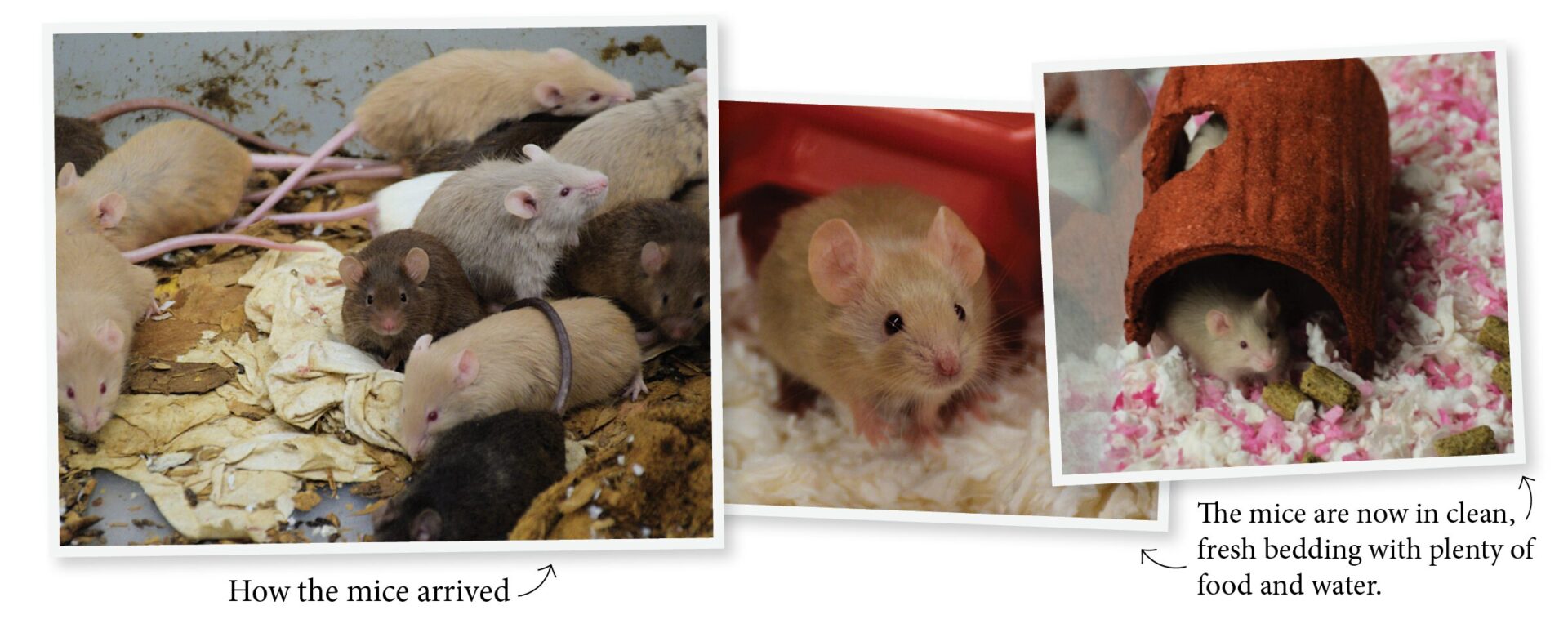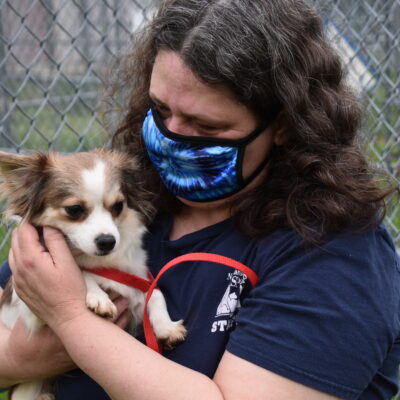
Stratham, NH — On November 13, 2024, the New Hampshire SPCA took in more than 300 mice that were surrendered from a home on the Seacoast. The number of animals involved is expected to grow to nearly 1,000 as the surrendering party has hundreds more still at their home. The NHSPCA is working to find space for more in the coming days and is asking for the public’s help through adoption, fostering and financial support.
Foster Application Adopt Monetary Donation Urgent Wish List
This situation began on Monday, November 11, when a homeowner came into our lobby hoping to surrender mice. The man was overwhelmed by the sheer number of mice in his possession, initially stating he had 150 pet mice in his home. Subsequently, he clarified that he actually had 150 tanks with mice in them. Depending on the size of the tank, there may be more than dozen in each. The homeowner brought three large plastic tubs to the NHSPCA on Monday, which combined, produced 73 mice. Subsequently, the NHSPCA staff made trips to the home on Tuesday and Wednesday, filling our vans with tubs full of mice. While we are still counting today, we believe the intake count is now approaching 400.
The mice were not separated by sex and were reproducing uncontrolled. Many of the females came to the shelter pregnant. By Tuesday morning, more mice had been born. Our current estimate is that there are an approximate 400 still at the man’s home, but we may be looking at intaking as many as 1,000 mice in total.
The New Hampshire SPCA has put out a call to all shelters in the New England area through the New England Federation of Humane Organizations, for assistance by transferring some of the mice out of the NHSPCA to make room for the remaining mice still in the man’s home. The mice were living in filthy plastic tubs that hadn’t been cleaned in what appeared to be a long time. “We have never seen anything like this. And the longer we wait to get all of the mice out of their terrible living conditions,” said Savannah Alcero, Director of Animal and Veterinary Services at the NHSPCA, “the greater the likelihood is that the numbers will continue to grow. With a gestation period of just around 20 days, mice can reproduce at an alarming rate.”
The mice involved in this situation are not common field mice. These are pet mice, sometimes referred to as “fancy mice.” Pet mice are typically friendly and curious. They are highly social and prefer to live in groups or at the very least in a pair. Pet mice are entertaining and relatively easy to care for. They can be a bit more skittish than some larger rodents, but can learn to be comfortable with handling. Mice are nocturnal and therefore will be most active at night. They need good quality food and a humane habitat that is cleaned regularly.
Some of the mice will be available for adoption beginning on Thursday, November 14, while those on pregnancy watch or in need veterinary care will need to remain in our care longer.
Community members wishing to help are encouraged to foster, adopt or donate.

